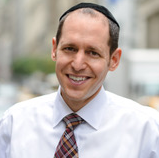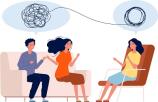How and Why Therapy Prevented Anxiety During the Pandemic
How and Why Therapy Prevented Anxiety During the Pandemic

Like many others around the globe, at the beginning of the COVID-19 pandemic, I found myself overwhelmed with anxiety. As the founder of a large mental health practice, I was rightfully worried about the transition of over 500 individuals and families to telehealth! Along with the logistical challenges came some very real concerns about how our already-anxious patients would fare, given the incredible stress, uncertainty, and isolation.
To my very pleasant surprise, my anxieties did not come to fruition. The clinicians in our offices observed that our patients seemed to do surprisingly well with both the transition to telehealth, and in general despite the rapidly-evolving globally-uncertain landscape. Our patients did not experience decompensations, increases in risky behavior, or other phenomena of concern. In fact, many reported feeling better than ever before.
Recently, my colleague Dr. Steven Pirutinsky and I looked at our clinical data to see if there were any observable trends. We focused on 764 adult patients who attended my clinic from October, 2019 to March, 2021, and divided them into four groups1 based on when their treatment began: (1) Pre-pandemic patients who started treatment before 2020, (2) Pandemic-onset patients who started treatment between January and March 2020, (3) During pandemic patients who started treatment between April and December 2020, and (4) Post-pandemic patients who started treatment after January 1st, 2021. All patients completed anxiety measures at each session they attended. We then used advanced statistics to examine changes in anxiety symptoms over the course of treatment.
We found something truly incredible: As a group, patients who were receiving Cognitive and Dialectical Behavior Therapy (CBT and DBT) prior to the pandemic did not experience an uptick in anxiety at any point during 20202. Furthermore, irrespective of when patients started treatment, they experienced the same trajectory characterized by a rapid improvement over the first 3-4 weeks followed by more graduate improvement over the next 2-3 months.
What accounts for these findings? I think the explanation is rather simple. Those who experienced anxiety before the pandemic and came in to get help, had tools and skills in place to be able to thrive and demonstrate resilience and strength, under pressure. CBT and DBT can prepare people for even the most unusual stressors - even those that come along once per century!
- Patella K. Our Pandemic Year—A COVID-19 Timeline. Yale Medicine [Internet]. 2021 Mar 9. [cited June 16, 2023]. Available from: https://www.yalemedicine.org/news/covid-timeline
- Rosmarin DH, Pirutinsky S. Response to anxiety treatment before, during, and after the COVID-19 pandemic. PLoS One. 2024;19(3):e0296949.















